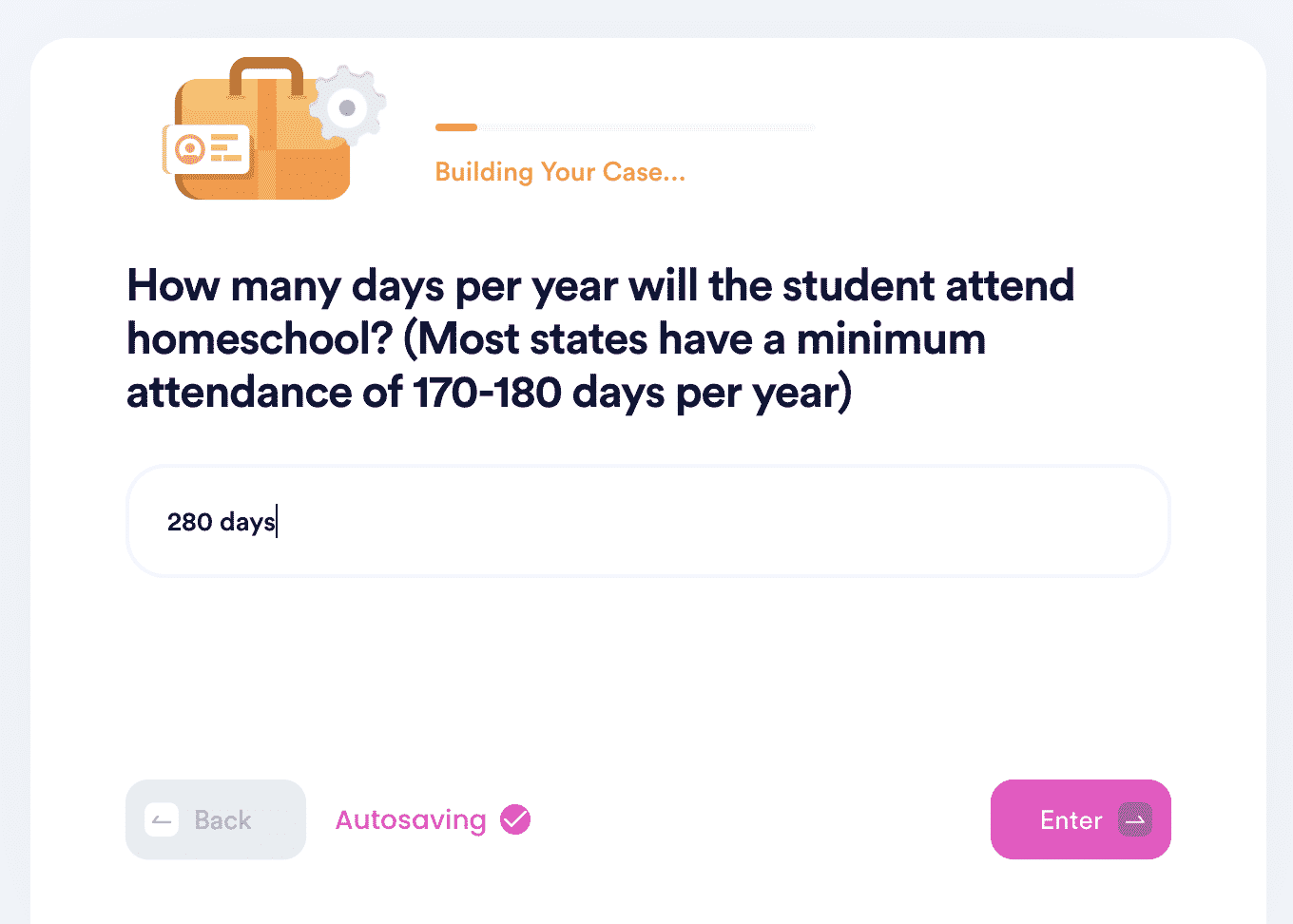When and How To Start Homeschooling in Texas
If you're a proud resident of the Lone Star State who's interested in home education, you’re in the right corner of the internet. We've created an all-encompassing guide to homeschooling in Texas with special emphasis on the curriculum requirements.
and gain access to a wide range of services. The pocket lawyer will guide you through the administrative procedures!
A Brief Overview of the Homeschool Laws in Texas
The permissive home education laws in Texas make it one of the easiest states for homeschooling in the U.S. At-home education is encompassed by the same regulations as private schools. While parents who teach at home have many freedoms, they still have to meet certain expectations.
If you’re thinking about homeschooling in Texas, here’s an overview of your rights and responsibilities:
- Homeschooling in Texas is conducted in good faith (bona fide) without the intention to deceive or corrupt
- You can hire a third party to homeschool your kid (e.g., a homeschool teacher)
- The compulsory age for school in Texas is between six and 19 years old. You must homeschool your child during that time
- If your child has never attended public school, you don’t have to file a declaration of intent to homeschool
- The cost of homeschooling is entirely your responsibility
- You have to map out the lesson plan, school activities, and field trips
What Are the Texas Homeschool Requirements?
Homeschool programs in Texas are designed by parents or guardians with some guidance from the state. If you want to prepare the student for future studies, it’s best to abide by the Texas homeschool requirements.
Take a look at the table below for more details:
| Requirements | Details |
|---|---|
| Curriculum requirements | You don’t have to use accredited homeschool programs in Texas, but there are a couple of prerequisites. The homeschool curriculum should:
|
| Keeping records | Parents who homeschool in Texas don’t have to keep records, but it’s advisable. A detailed homeschool transcript usually contains the following:
The records will further legitimize your child’s homeschool diploma and can also be used for background checks |
| Participation in standardized testing | The State of Texas Assessment of Academic Readiness (STAAR) doesn’t evaluate homeschooled students. Your child can take a standardized test if you arrange for it yourself |
| Graduation requirements | Kids who attend homeschool in Texas must meet the same graduation requirements as their public school peers. Regular high school programs amount to 26 credits after completion, so you can use that as the basis for your curriculum |
How To Start Homeschooling in Texas
Unlike many other states, you don’t have to file an official letter of intent to homeschool in Texas if your child is younger than six or was never enrolled in school. You can start homeschooling right away. It doesn’t matter if it’s the beginning, middle, or end of the school year.
If you want to remove your child from public school, the homeschool enrollment procedure is different. Here’s what you’ll need to do:
- Notify the school authorities
- Compose an official withdrawal letter
- Get it notarized
- Send it to the school district superintendent
Since public schools keep attendance records, filing an intent to homeschool in Texas is necessary in this case. If you don’t alert the competent authorities, your child will be considered absent from class instead of homeschooled.
DoNotPay—The Most Efficient Way To Generate a Notice of Intent To Homeschool

If you’ve changed your mind about public school, you’ll have to go through the motions and submit the right paperwork. DoNotPay can generate your Texas letter of intent and forward it to the school authorities in record timing.
Try our Notice of Intent to Homeschool product by following these simple steps:
- Select the Notice of Intent to Homeschool product
- Provide information about your current school district
- Answer some questions

It doesn’t end there—by using our Notarize Any Document feature, you can get your letter of intent notarized online.
Texas Homeschooling Associations—Should You Join?
It might be beneficial for both you and your kid to join a homeschooling group in Texas. Apart from sharing experiences with like-minded people, you can also ask for tips on how to homeschool your child.
Reaching out to a homeschooling co-op can be especially helpful for novices. Veteran members can provide first-hand advice on a wide range of homeschooling topics, such as:
- Study tips—what the best teaching style for children with learning disabilities or attention disorders is
- Homeschool scholarship programs—where and how to apply
- Matters of religious upbringing—if there is a homeschooling curriculum specifically for Christian folk, for example
Don’t Stop There—Check Out DoNotPay’s Product Range
DoNotPay has many tricks up its sleeve—no matter the admin or issue at hand, our AI-enabled app can power through it in a split second. Look into our product range to find out how you can:
- Protect your original work from copyright infringement
- Compose a bulletproof financial aid appeal letter
- Get your college application fees waived
- Send Demand Letters To any company in small claims court
- Get in touch with a loved one in prison
- Look up sex offenders in your area
- Practice for any government test
- Fight workplace discrimination
- Draw up any document
- Mail anything hassle-free
What Else Do You Need? DoNotPay Will Provide!
If you want to cancel a subscription before your free trial expires so that you don’t get charged, you can count on our virtual credit card to do it in your stead! We can also make sure that you get what’s rightfully yours—be it a refund, insurance, warranty, unclaimed money, flight refund, raffle ticket, or gift card cash back.
You no longer have to go through or administrative hurdles on your own—as soon as you sign up for DoNotPay, you’ll get access to our app’s assistance and will be able to use it to fight injustice.


